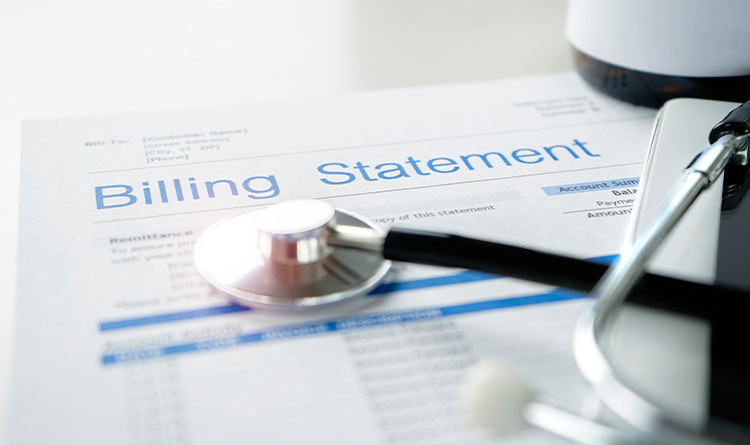
Patient eligibility verification, or PVE as it is also known, has long been an important part of the medical billing process for healthcare providers. It’s been around for decades, and it isn’t going anywhere in the foreseeable future, so you might as well start learning how to take advantage of this time-saving service when you can!
Read on to learn more about why patient eligibility verification is important for billing healthcare services!
What Is Patient Eligibility Verification?
Eligibility Verification is a step of an organization’s process to help identify and/or document if a patient is eligible for their particular product or service. More often than not, it is necessary to submit documentation to verify that one is eligible. It ensures that patients are rightfully given access to a service they may need. It’s important because it stops people from using services they don’t actually need, which in turn helps with cost control. In some cases, organizations will refuse treatment to those who don’t meet eligibility requirements due to fear of medical liability lawsuits arising from missed diagnoses or delayed treatment.
For example, Medicare eligibility verification checks to see if a patient has all of his or her insurance benefits and can have a service covered. Hospitals must verify eligibility for private-pay patients, too. The type of verification that needs to take place depends on who will be paying for care.
The Benefits Of Patient Eligibility Verification
- Efficiency:In today’s healthcare market, efficiency and streamlined operations are necessary for success. When you’re dealing with thousands of patients that could be paying thousands of dollars in reimbursements, it’s important to know who is and isn’t eligible for your services. With an efficient eligibility verification solution, you can ensure that patients are receiving appropriate care—and pay for it—while cutting back on wasteful spending. In fact, with a well-designed system in place, you can even streamline other administrative processes such as check-in/check-out and document storage. The more time your team spends focusing on actual medical care and patient engagement, the better off your practice will be.
- Accuracy:The United States is full of people who have Medicare, Medicaid, and Health Insurance, and some might be eligible for certain services. Once a patient’s insurance information is entered into an EHR system, that data must be verified as true before further health care tasks can be completed. If someone’s insurance status comes back as false during eligibility verification, then it could affect other tasks in which they are trying to complete (such as prescription or medical claim forms). Eligibility Verification plays a key role in EHR systems and overall efficiency.
- Transparency:Inaccurate data leads to a reduction in meaningful care and can put patients at risk, which means that electronic health records (EHRs) need to be able to verify which patient has visited a provider on a specific date and time. Hence, providers know they’re getting accurate information.
- Cost savings:Whether you are a startup or a Fortune 500 company, it’s never been more critical to demonstrate that your products and services are helping patients. Recent changes in healthcare have made it increasingly difficult for physicians to practice medicine and act as gatekeepers—these were two of the reasons why CMS mandated that all eligible providers implement an EHR system. Yet, doing so can be costly and time-consuming; one way to overcome these obstacles is by implementing some cost-saving strategies: streamline claims transactions, reduce risk with accurate clinical information, eliminate unnecessary denials with up-to-date patient data, and cut payment delays by seamlessly transferring provider data.

Patient eligibility verification, or PVE as it is also known, has long been an important part of the medical billing process for healthcare providers. It’s been around for decades, and it isn’t going anywhere in the foreseeable future, so you might as well start learning how to take advantage of this time-saving service when you can!
Read on to learn more about why patient eligibility verification is important for billing healthcare services!
What Is Patient Eligibility Verification?
Eligibility Verification is a step of an organization’s process to help identify and/or document if a patient is eligible for their particular product or service. More often than not, it is necessary to submit documentation to verify that one is eligible. It ensures that patients are rightfully given access to a service they may need. It’s important because it stops people from using services they don’t actually need, which in turn helps with cost control. In some cases, organizations will refuse treatment to those who don’t meet eligibility requirements due to fear of medical liability lawsuits arising from missed diagnoses or delayed treatment.
For example, Medicare eligibility verification checks to see if a patient has all of his or her insurance benefits and can have a service covered. Hospitals must verify eligibility for private-pay patients, too. The type of verification that needs to take place depends on who will be paying for care.
The Benefits Of Patient Eligibility Verification
- Efficiency:In today’s healthcare market, efficiency and streamlined operations are necessary for success. When you’re dealing with thousands of patients that could be paying thousands of dollars in reimbursements, it’s important to know who is and isn’t eligible for your services. With an efficient eligibility verification solution, you can ensure that patients are receiving appropriate care—and pay for it—while cutting back on wasteful spending. In fact, with a well-designed system in place, you can even streamline other administrative processes such as check-in/check-out and document storage. The more time your team spends focusing on actual medical care and patient engagement, the better off your practice will be.
- Accuracy:The United States is full of people who have Medicare, Medicaid, and Health Insurance, and some might be eligible for certain services. Once a patient’s insurance information is entered into an EHR system, that data must be verified as true before further health care tasks can be completed. If someone’s insurance status comes back as false during eligibility verification, then it could affect other tasks in which they are trying to complete (such as prescription or medical claim forms). Eligibility Verification plays a key role in EHR systems and overall efficiency.
- Transparency:Inaccurate data leads to a reduction in meaningful care and can put patients at risk, which means that electronic health records (EHRs) need to be able to verify which patient has visited a provider on a specific date and time. Hence, providers know they’re getting accurate information.
- Cost savings:Whether you are a startup or a Fortune 500 company, it’s never been more critical to demonstrate that your products and services are helping patients. Recent changes in healthcare have made it increasingly difficult for physicians to practice medicine and act as gatekeepers—these were two of the reasons why CMS mandated that all eligible providers implement an EHR system. Yet, doing so can be costly and time-consuming; one way to overcome these obstacles is by implementing some cost-saving strategies: streamline claims transactions, reduce risk with accurate clinical information, eliminate unnecessary denials with up-to-date patient data, and cut payment delays by seamlessly transferring provider data.




Recent Comments